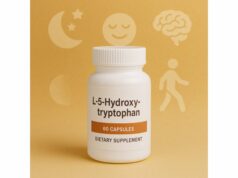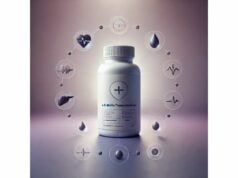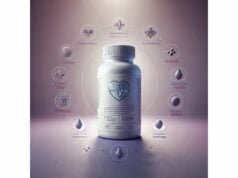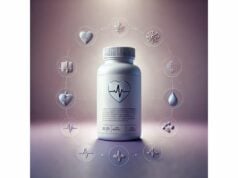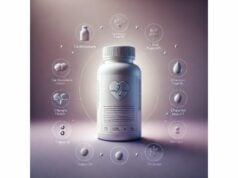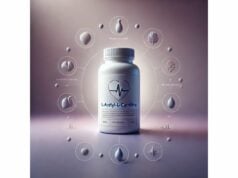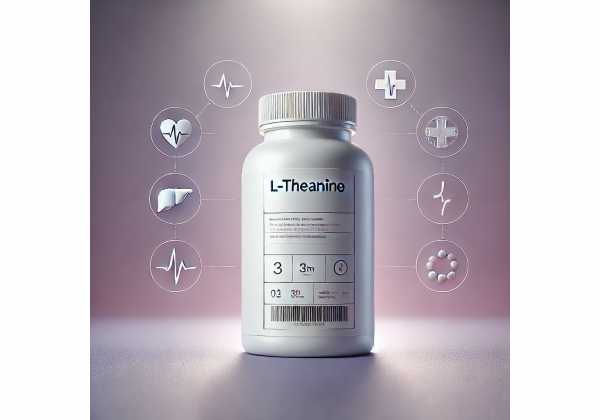
L-theanine is a non-protein amino acid found naturally in tea leaves (Camellia sinensis) and certain mushrooms. People reach for it to take the “edge” off stress without feeling sedated, to sharpen attention (especially when paired with caffeine), and to support sleep quality. Unlike many calming ingredients, L-theanine acts fast—often within 30–60 minutes—by promoting alpha brain waves linked with a relaxed yet alert state. It also influences neurotransmitters such as GABA, dopamine, and serotonin, and may modulate stress hormones and the autonomic nervous system. In daily life, that can translate to steadier focus, fewer stress symptoms, and easier wind-down at night. This guide summarizes how L-theanine works, the benefits with the strongest evidence, practical use cases (workdays, study sessions, jet lag, evening routines), dosage strategies, combinations to consider or avoid, and safety specifics. Whether you prefer tea or a standardized supplement, you’ll learn exactly when and how to use L-theanine to get reliable results.
Key Insights
- Supports calm focus and stress reduction within 30–60 minutes at 100–200 mg.
- May enhance attention and working memory; pairing with 50–100 mg caffeine often boosts effects.
- Typical daily intake: 100–400 mg (single or divided); pre-sleep: 100–200 mg.
- Safety caveat: can cause mild headaches or dizziness; start low and avoid exceeding 400 mg/day without guidance.
- Avoid if you are pregnant, breastfeeding, or taking sedative/psychiatric medications without clinician approval.
Table of Contents
- What is L-theanine and how it works
- Benefits: what the evidence supports
- How to use it for focus, sleep, and stress
- Dosage: how much and when
- Side effects, interactions, and who should avoid
- Evidence in context and open questions
What is L-theanine and how it works
L-theanine (γ-glutamylethylamide) is a unique amino acid responsible for much of tea’s characteristic “umami” taste and calm-alert feeling. After ingestion, it is absorbed in the small intestine, crosses the blood–brain barrier, and reaches peak levels within roughly an hour. Many users notice a “softening” of stress alongside clearer attention—not a sedative fog.
Mechanistically, L-theanine seems to promote a relaxed attentional state through several complementary actions:
- Alpha wave modulation: Alpha (8–13 Hz) brain activity is associated with relaxed alertness. L-theanine increases frontal and whole-scalp alpha power, aligning with reduced subjective stress and lower salivary cortisol under acute challenge.
- Neurotransmitter balance: It influences inhibitory (GABA) and excitatory (glutamate) signaling, and can nudge dopamine and serotonin—effects that likely underpin calmer mood without impairing psychomotor performance.
- Stress response tuning: By modulating the hypothalamic-pituitary-adrenal (HPA) axis and autonomic output, L-theanine helps blunt stress-related spikes in heart rate and blood pressure and reduces perceived stress scores in some trials.
- Synergy with caffeine: Caffeine improves vigilance and reaction time, but can raise jitteriness. L-theanine typically tempers the “edges” of caffeine while preserving or enhancing attention and working memory. This synergy explains why many people experience “calm focus” from tea compared with coffee.
From a practical standpoint, these actions make L-theanine versatile: a morning “co-pilot” with coffee for focused work, a midday reset before a presentation, or an evening aid to transition toward sleep—especially when rumination is the barrier.
Quality matters. Standardized supplements typically provide 100–200 mg per capsule, often labeled as pure L-theanine or a branded form. Tea naturally contains L-theanine (commonly 5–30 mg per cup depending on leaf grade and brewing), but also caffeine. If you want the effects without caffeine, a decaf tea or standalone capsule is more predictable.
Finally, L-theanine is not a cure-all. Its strongest, most consistent effects appear in acute stress regulation and attentional support. Benefits for chronic anxiety disorders, mood disorders, or clinical insomnia remain an area of ongoing study and should be considered adjunctive at best and supervised by a clinician when combined with medications.
Benefits: what the evidence supports
Acute stress relief and relaxation. Multiple human trials show that a single 200 mg dose can reduce stress-related biomarkers and subjective state anxiety during or after a standardized stressor. Increased frontal alpha power on EEG parallels these effects, suggesting genuine central relaxation rather than sedation. Many participants report feeling more composed, with fewer stress symptoms during demanding cognitive tasks or public-facing situations.
Attention, working memory, and mental performance. In healthy adults, L-theanine can improve attention and aspects of executive function. Effects are modest alone but often stronger when combined with 50–100 mg caffeine. The combination tends to speed reaction times, sustain vigilance, and improve accuracy on attention tasks, while lowering the jitter and blood-pressure bump caffeine alone can produce. For study sessions or extended screen work, this calm-focus profile is often the most noticeable “benefit.”
Sleep quality (especially sleep initiation). L-theanine does not act like a sedative hypnotic. Instead, by reducing presleep cognitive arousal (mental tension, intrusive thoughts), it can shorten sleep latency and improve subjective sleep quality in people with stress-related sleep complaints. Typical timing is 100–200 mg taken 30–60 minutes before bed. Some users also employ a split pattern—100 mg late afternoon and 100 mg at bedtime—on high-stress days.
Mood and overall well-being. In short trials (2–8 weeks), daily 200–400 mg has been linked to improvements in stress-related symptoms and self-rated well-being in people with mild to moderate stress. Data in diagnosed psychiatric conditions are exploratory and mixed. L-theanine has been studied as an adjunct in certain disorders, but those uses should remain under medical supervision.
Cardiovascular responses to stress. Caffeine can transiently increase blood pressure; L-theanine appears to temper this effect during acute stress without abolishing attentional benefits. While intriguing, these findings should not be extrapolated to long-term blood-pressure management.
Who benefits most?
- People sensitive to caffeine who want sharper focus without jitters.
- Individuals facing acute stress (presentations, exams, travel).
- Those with “tired-but-wired” evenings marked by racing thoughts.
- Knowledge workers seeking sustained attention during long work blocks.
What benefits are uncertain? Robust, long-term reductions in clinical anxiety, depression, or insomnia; performance enhancements in elite sports outside of narrow attention tasks; and disease-modifying effects. Evidence exists but is not definitive.
How to use it for focus, sleep, and stress
For calm focus (work or study):
- Start: 100–200 mg L-theanine 30–45 minutes before focused work.
- With caffeine: Pair with 50–100 mg caffeine for synergistic attention (about half to one small cup of coffee). If you’re caffeine-sensitive, start at the low end or use decaf coffee/tea plus 100–200 mg theanine.
- Stack pattern: 100 mg on waking and 100 mg early afternoon can smooth the day. Avoid new caffeine after mid-afternoon if sleep is a priority.
For stress spikes:
- Acute dose: 200 mg during or just before a stressful event (presentation, flight, difficult meeting).
- Layering: If you already consumed caffeine, use theanine alone; if not, consider 100 mg caffeine + 200 mg theanine for composure plus alertness.
For sleep support:
- Evening routine: 100–200 mg 30–60 minutes before bed to reduce mental overactivity.
- High-stress evenings: Try 100 mg late afternoon and 100 mg at bedtime.
- Combine with sleep hygiene: Dim lights, consistent wind-down, cool bedroom, and no large late meals. Theanine complements, but does not replace, these basics.
With tea instead of capsules:
- Green tea typically provides ~8–30 mg L-theanine and 20–50 mg caffeine per cup, but amounts vary widely with cultivar, shading, and brewing time.
- Matcha contains higher theanine and caffeine per serving owing to powdered leaf consumption.
- Decaf green tea still provides some theanine with minimal caffeine—useful at night.
If you need reliable dosing or want the effect without caffeine, a standardized supplement is simpler.
What to pair—or not pair—with L-theanine:
- Good pairings: Low-dose caffeine for attention; magnesium or glycine for evening wind-down; short light exposure and movement breaks for daytime energy.
- Use caution: Sedatives, sleep medications, or alcohol can compound drowsiness; psychotropic prescriptions (SSRIs, SNRIs, antipsychotics, stimulants) warrant clinician oversight before adding theanine.
- Not necessary: Mega-dosing beyond 400 mg/day; theanine is not “more is better.”
Tracking what works: Pick one goal (e.g., focused writing blocks or faster sleep onset). Use the same dose and timing for a week, then adjust. Keep notes on alertness, calmness, and any side effects.
Dosage: how much and when
Typical effective range: 100–400 mg/day. Many people start at 100–200 mg as a single dose and evaluate response within an hour. If the goal is calmer evenings, take 100–200 mg 30–60 minutes before bedtime. For workday focus, 100–200 mg upon waking or 30–45 minutes before a cognitively demanding block is common.
Acute vs. daily use:
- Acute: 200 mg is the most studied single dose for rapid stress modulation and alpha-wave increases.
- Daily: 200–400 mg/day for 2–8 weeks has been used in research for stress symptom reduction. If using daily, consider periodic “off” days to reassess ongoing need.
With caffeine: A widely used ratio is 2:1 theanine:caffeine (e.g., 200 mg theanine + 100 mg caffeine). If you’re caffeine-sensitive, you can experiment with a 3–4:1 ratio or use theanine solo.
Tea equivalents: One cup of green tea may deliver ~8–30 mg theanine and 20–50 mg caffeine; matcha can be higher in both. Because tea content varies dramatically, using tea for precision dosing is difficult.
Upper limits and prudence: L-theanine is generally well tolerated, but exceeding 400 mg/day offers diminishing returns for most people and may increase the chance of mild side effects (headache, lightheadedness). Athletes and shift-workers sometimes use 100–200 mg strategically before stress-heavy tasks or rest windows; long-term high daily intakes are unnecessary for most use cases.
Special populations:
- Older adults: Start at 100 mg; effects on attention can be noticeable, but sensitivity varies.
- Adolescents: Data are limited; involve a clinician.
- Pregnancy/breastfeeding: Safety data are insufficient—avoid unless your clinician advises otherwise.
- Medication users: If you take psychiatric medications, sedatives, or have cardiovascular conditions, discuss L-theanine with your prescriber first, especially if you also use caffeine.
How to evaluate response: Expect changes in tension, composure, and ability to sustain attention within the first hour. For sleep, benefits usually appear the same evening. For ongoing stress, reassess after 2–4 weeks.
Side effects, interactions, and who should avoid
Common tolerability: L-theanine has a strong safety profile in healthy adults at 100–400 mg/day. Most users report no adverse effects. When they occur, they’re typically mild and transient: headache, dizziness, gastrointestinal upset, or unusual drowsiness—often related to higher doses or stacking with other calming agents.
Blood pressure and heart rate: In acute settings, L-theanine may blunt stress-related increases in heart rate and blood pressure, particularly when caffeine is present. If you have hypotension, start low and monitor how you feel; if you have hypertension, do not treat it with L-theanine—follow medical guidance.
Interactions:
- Sedatives and alcohol: Potential additive calming effects; may increase drowsiness or impair coordination.
- Stimulants or high caffeine: Theanine can temper jitters, but very high caffeine still raises heart rate and may worsen sleep. Balance the stack and cut caffeine after mid-afternoon.
- Psychotropic medications: Because L-theanine can influence neurotransmitters and stress hormones, coordinate with your prescriber before adding it to SSRIs/SNRIs, benzodiazepines, antipsychotics, stimulants, or mood stabilizers.
- Herbal blends: Many “relaxation” formulas combine theanine with magnesium, adaptogens, or peptides; start with standalone theanine so you can attribute effects and avoid over-sedation.
Who should avoid or use only with medical advice:
- Pregnant or breastfeeding individuals (insufficient safety data).
- People with significant psychiatric conditions unless supervised (due to potential interactions and symptom complexity).
- Anyone with planned surgery (pause at least one week prior unless cleared by your surgeon).
- Those experiencing unexplained daytime sleepiness or dizziness at low doses.
Quality and purity: Choose products that disclose L-theanine content (not just “green tea extract”), provide third-party testing, and list inactive ingredients. Branded forms can offer consistency, but high-quality generics also perform well.
When to stop: Discontinue if you develop persistent headaches, dizziness, abnormal fatigue, palpitations, or any new/worsening symptoms, and consult a clinician.
Evidence in context and open questions
What’s solid:
- Acute relaxation with preserved alertness. Repeated findings of increased alpha brain activity, lower cortisol under stress, and improved state anxiety with single-dose 200 mg support a real central calming action.
- Attention support—especially with caffeine. The pairing consistently improves reaction time and attention compared with placebo and often performs better than caffeine alone, with fewer side effects.
- Subjective sleep quality. For people whose sleep trouble is driven by cognitive arousal, theanine helps “downshift” into sleep without next-day grogginess.
What’s promising but not definitive:
- Chronic stress and mood over weeks. Several 2–8 week studies show improved stress symptom scores with daily 200–400 mg, yet sample sizes are modest and designs vary.
- Clinical populations. Preliminary adjunctive data exist in certain psychiatric disorders, but heterogeneity and small trials limit conclusions. Medical oversight is essential here.
What we still need:
- Large, longer RCTs that isolate pure L-theanine across diverse populations (including women, older adults, and caffeine-sensitive individuals), with standardized outcomes and biomarker panels.
- Dose–response clarity. Most positive trials cluster around 200 mg acute; more work is needed to map benefits (and side effects) at 50–100 mg and 300–400 mg across different goals.
- Sleep architecture data. Many studies rely on subjective sleep metrics; more polysomnography and actigraphy would clarify stage-specific effects.
- Comparative effectiveness. Head-to-head trials vs. common options (magnesium glycinate, ashwagandha, low-dose doxylamine) could guide practical choices.
Bottom line: If your goals are calmer focus, smoother responses to stress, or a quieter mind at bedtime, L-theanine is a sensible, low-risk first step. Use precise dosing, consistent timing, and thoughtful pairing with caffeine (or none at night). Treat long-term use as optional—reach for it when your life demands poise and attention, scale down when the workload eases, and loop in a clinician if you live with medical or psychiatric conditions.
References
- The Effects of Green Tea Amino Acid L-Theanine on Cognitive Function and Mental State in Humans: A Systematic Review 2020 (Systematic Review)
- A Randomized, Triple-Blind, Placebo-Controlled, Crossover Study to Evaluate the Efficacy of a Single Dose of AlphaWave L-Theanine on Stress in a Healthy Adult Population 2021 (RCT)
- Effects of l-Theanine on Cognitive Function in Middle-Aged and Older Subjects: A Randomized Placebo-Controlled Study 2021 (RCT)
- Effect of a Combination of Magnesium, B Vitamins, Rhodiola, and Green Tea (L-Theanine) on Chronically Stressed Healthy Individuals—A Randomized, Placebo-Controlled Study 2022 (RCT)
- Effects of L-Theanine Administration on Stress-Related Symptoms and Cognitive Functions in Healthy Adults: A Randomized Controlled Trial 2019 (RCT)
Disclaimer
This information is educational and is not a substitute for personalized medical advice, diagnosis, or treatment. Do not start, stop, or change any supplement or medication based on this article without talking to a qualified healthcare professional, especially if you are pregnant or breastfeeding, have a medical or psychiatric condition, or take prescription drugs. If you experience adverse effects, discontinue use and seek medical care.
If you found this guide helpful, consider sharing it on Facebook, X (formerly Twitter), or your preferred platform, and follow us for more evidence-based wellness resources. Your support helps us continue creating high-quality content.

